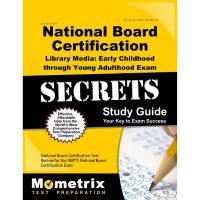National Board Certification Library Media: Early Childhood through Young Adulthood Exam
The National Board Certification for Library Media: Early Childhood through Young Adulthood is a prestigious certification that recognizes accomplished teachers in the field of library media. This certification is designed to enhance the professional growth of educators and improve the quality of education for students. It is a rigorous, peer-reviewed process that ensures educators have met high standards through study, expert evaluation, self-assessment, and peer review.
Eligibility
To be eligible for the National Board Certification in Library Media, candidates must meet specific criteria. Firstly, candidates must hold a bachelor’s degree from an accredited institution. Secondly, they must have completed at least three years of teaching or school counseling experience. This experience must be in a pre-kindergarten through 12th-grade school setting. Lastly, candidates must possess a valid state teaching license or meet the licensure requirements set by their state for a school counselor.
Syllabus
The syllabus for the National Board Certification in Library Media is comprehensive and designed to assess a candidate's proficiency in several core areas. The syllabus is divided into four main components:
- Component 1: Content Knowledge - This component evaluates the candidate's understanding of the library media field, including literature, information technology, and the role of the library media specialist in education. Candidates are tested on their ability to integrate information literacy skills into the curriculum and their knowledge of literature and digital resources.
- Component 2: Differentiation in Instruction - This component requires candidates to demonstrate their ability to plan and implement instruction that meets the diverse needs of students. Candidates must submit evidence of their teaching practices, including lesson plans, student work samples, and reflective commentaries.
- Component 3: Teaching Practice and Learning Environment - In this component, candidates are assessed on their ability to create a positive and effective learning environment. This includes managing the library space, fostering a love for reading, and integrating technology into learning. Candidates must submit video recordings of their teaching and provide detailed analyses of their instructional strategies.
- Component 4: Effective and Reflective Practitioner - This component focuses on a candidate's ability to engage in continuous learning and professional development. Candidates must demonstrate their involvement in professional learning communities, their efforts to improve their practice, and their impact on student learning outcomes.
Format of the Exam
The National Board Certification process is a performance-based assessment that requires candidates to demonstrate their teaching practices and knowledge through various formats. The certification process is divided into two main parts: portfolio entries and a computer-based assessment.
Portfolio Entries
Candidates are required to submit four portfolio entries, each corresponding to one of the components mentioned in the syllabus. These entries include evidence of teaching practices, such as lesson plans, student work samples, video recordings of classroom instruction, and reflective analyses. Candidates must provide detailed explanations of their instructional decisions and the impact of their teaching on student learning.
Computer-Based Assessment
The computer-based assessment consists of multiple-choice questions and constructed response questions that evaluate the candidate's content knowledge in library media. This assessment covers a broad range of topics, including literature, information technology, and instructional practices. Candidates are given a set time to complete the assessment, which is administered at a designated testing center.
The entire certification process is designed to be completed within a one to three-year period, allowing candidates to work at their own pace. Candidates are encouraged to engage in professional development activities and collaborate with peers throughout the certification process. Successful candidates are awarded the National Board Certification, a mark of distinction that signifies their commitment to excellence in teaching and their dedication to improving student learning outcomes.
Conclusion
The National Board Certification for Library Media: Early Childhood through Young Adulthood is a valuable credential for educators seeking to advance their careers and enhance their teaching practices. By meeting the rigorous standards set by the National Board for Professional Teaching Standards, certified educators demonstrate their expertise in library media and their commitment to providing high-quality education to students. This certification not only benefits educators but also contributes to the overall improvement of educational practices and student learning experiences.
Study Guide and Test Preparation for National Board Certification Library Media: Early Childhood through Young Adulthood Exam
A Complete National Board Certification Library Media: Early Childhood through Young Adulthood Exam Study Guide that includes sample questions, test tips and a complete study plan prepared by a team of expert and dedicated researchers. Cost-effective and qualified exam help from a committed exam preparation company.

